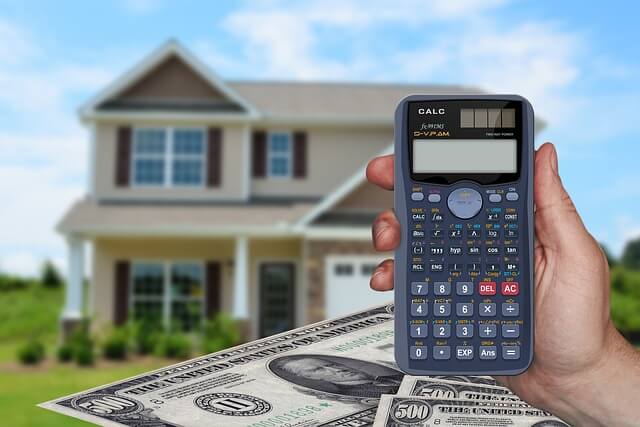In a real estate market that constantly keeps us on our toes, knowing the value of your house is like having a secret weapon. Whether you’re itching to sell, eyeing a refinance, or just curious about the worth of your home, a property valuation is your golden ticket.
In this article, we will explore the importance of knowing your home’s valuation, how to prepare your house to get a stellar valuation, the nitty-gritty of the value calculation process, what valuers look for, the difference between property valuation and market valuation, and common property valuation mistakes.
Why Knowing Your House’s Valuation Matters
Apart from the bragging rights. Knowing your home’s value serves some mighty purposes.
1. It Helps Define Selling Strategy
If you’re thinking of tossing your house into the market, a spot-on valuation is your compass. An accurate valuation is essential to set a competitive and realistic asking price. Price it too high, and folks might swipe left; price it too low, and you could be leaving cash on the table.
2. Refinance Rally
Planning to refinance that mortgage? Lenders will ask for a valuation to figure out how much they’re willing to fork over. Property valuation helps to determine the loan-to-value ratio (LTV). Nail it, and you might just score better loan terms and potentially lower interest rates.
3. Get Investment Intel
Keeping tabs on your property’s value helps you make informed investment choices. Think about the best possible options for capital growth and rental income potential.
4. Insuring Right
Sometimes it’s better to play safe. Don’t gamble with insurance coverage for your home. A proper home valuation ensures you’ve got your property covered in case of a mishap.
5. Property Tax
Property taxes follow property valuations. Keep it accurate, so you’re not paying more than your fair share.
How to Prepare Your House for Valuation
Here’s your DIY checklist for nailing that House valuation
1. Keep it Sparkling Clean
Valuers love a tidy space. Ensure that your home is tidy and well-maintained, both inside and outside.
2. Fixer-Upper Time
Get those repairs in order. Consider making minor renovations or updates to enhance your home’s value. No valuer wants to see a leaky roof or a wonky step. Avoid overcapitalizing, as not all renovations result in a significant valuation increase.
3. Curb Appeal is King
First impressions matter. Landscaping and exterior improvements can work wonders.
4. Paperwork Parade
Gather up all the relevant documentation, such as building permits, receipts for renovations, and any other relevant paperwork. This can help valuers better understand the history and condition of your property.
5. Scout Comps
Check out what similar properties in your ‘hood sold for recently. It’s like spying on the competition. This information can be helpful when discussing your property with a valuer.
How is A Property Valuation Calculated
Property valuations are typically carried out by certified valuers who follow established industry standards and guidelines. Behind the scenes, the valuation process involves several key factors.
1. Comparable sales
Valuers assess recent sales of nearby properties that resemble yours. These “comps” set the stage to determine the market value.
2. Inspect & Reflect
They go Sherlock Holmes on your property. The condition of your home, including any recent renovations or maintenance work, is considered. Valuers assess both the interior and exterior of the property.
3. Location, Location
Your spot on the map matters. Proximity to amenities, schools, parks, public transport, and local market? You bet it counts. They also look for ease of access, including garaging options.
4. Land Size & Zoning
They size up your land and its zoning, which can affect the property’s potential for development or future use. Environmental concerns like flood zones or fire risks? Valuers clock those too.
5. Market Trends
Valuers factor in current market vibes – supply, demand, interest rates, economic factors, etc.
6. Regulation Radar
Local rules and zoning laws are on their radar. Valuers ensure that your property complies with these regulations. Make sure your property plays by the rules.
7. Additional Twists
Got a jaw-dropping feature? A pool, a swanky kitchen, or a lush garden? Any unique or desirable features of your property can positively impact its valuation.
Understand that valuers are all business; emotions don’t sway their judgment. Valuers don’t mess around; they’re the detectives of the property world.
Property Valuation vs. Market Valuation:
While property valuation and market valuation may seem similar, they serve different purposes. Let’s clear up the confusion.
Property Valuation – This is your property’s individual spotlight. It emphasizes your property’s attributes and condition. Property valuation is a process carried out by certified valuers to determine the current market value of a specific property.
Market Valuation – Property appraisal is the broader view, looking at property values within a particular region or area. It places more emphasis on comparing the property to recent sales of similar properties in the surrounding area to determine its market value.
In essence, property valuation hones in on your crib, while market valuation casts a wider net look at the bigger picture, considering multiple properties within a specific area or market.
Common Property Valuation Blunders to Dodge
Oh, the pitfalls! Despite the importance of property valuations, several common mistakes can lead to inaccurate assessments. Keep an eye out for these-
1. Renovation Overdrive
While renovations can juice up a property’s value, it’s crucial to assess whether the expected increase justifies the cost. Overestimating the impact of renovations and overspending can lead to disappointment.
2. Maintenance Mishaps
Neglecting repairs? Failing to address maintenance issues before a valuation can result in a lower valuation than expected. Regular upkeep is essential to maintain and potentially increase your property’s value. Keep your property shipshape.
3. Inaccurate Comparables
When checking comparable sales, make sure they’re true doppelgängers. They need to be truly similar in terms of size, condition, and location. A mismatched comparison can skew your house valuation.
4. Emotional Attachments
We all love our homes, but valuations aren’t about feelings. Set realistic expectations. Stay cool and objective.
5. Regulations and Zoning
Local laws matter. Failure to comply with local regulations and zoning requirements can prove costly. Ensure that your property adheres to all relevant regulations.
6. Exterior Neglect
Don’t forget the outside! Curb appeal matters. A shabby exterior can create a negative first impression and potentially lower its valuation.
While we’ve already peeled back the valuation layers, let’s zoom in a bit:
- Interior Inspection – Valuers scrutinize the interior of your property with hawk-like precision. They’ll assess the quality of finishes, the layout’s functionality, and whether it’s in line with current market trends.
- Exterior Appeal: Curb appeal extends beyond landscaping. Valuers check for structural issues, the condition of the roof, and the general upkeep of your property’s exterior.
- Unique Features – If your home boasts unique elements like a view of the Sydney Opera House or an antique fireplace, vintage items, valuers take note. These distinctive features can set your property apart and influence its value.
- Property Age – The age of your property can have an impact. Older homes may have charming character but might require updates, while newer builds are often more energy-efficient.
- Neighborhood Dynamics – Beyond proximity to amenities, valuers consider the neighborhood’s overall vibe. A booming suburb can attract higher valuations.
- Future Potential – Valuers aren’t just concerned with your property today but also its future potential. If there’s room for expansion, redevelopment, or a potential granny flat, that can influence the value.
- Market Cycles – Property markets go through cycles of growth and decline. Valuers take the current phase into account when evaluating your property.
Valuation Reports
After the valuer’s Sherlock Holmes act, you’ll receive a valuation report. This report outlines the assessed value and provides details about the property, the market conditions, and the methodology used. It’s a valuable document for negotiations, lending, or making informed decisions about your property.
Valuation Costs
Yep, valuations aren’t freebies. Expect to pay a fee for a professional property valuation. The cost can vary depending on the complexity of the property and the location. However, considering the benefits and potential savings, it’s a small price to pay.
When Valuations Don’t Match Expectations
Valuation results can sometimes differ from your expectations. If it’s lower than you hoped for, don’t panic. You can:
a. Seek Clarification
Reach out to the valuer and discuss their findings. They should be able to explain how they arrived at the valuation.
b. Consider Market Changes
Property values can fluctuate. If your valuation was done during a market slump, it might be worth revisiting it later when conditions improve.
c. Review Comps
Check if the comparable sales used in the valuation are accurate. If not, provide updated information to support a higher valuation.
d. Appeal the Valuation
In some cases, you can appeal a valuation if you believe it’s significantly undervalued. Consult with a real estate expert or a solicitor for guidance.
e. Make Improvements
If your valuation highlighted specific issues, consider making improvements to increase your property’s value.
Frequency of Valuations
Property valuations aren’t a one-and-done deal. They should be updated periodically, especially if you plan to make significant changes to your property or if the market experiences substantial shifts. Many homeowners opt for updated valuations every few years to stay current.
Knowing your property’s value is more than just a cool fact, it’s in fact a strategic move. We’ve explored the nitty-gritty of house valuations, from what valuers inspect to how to handle discrepancies. Keep in mind that property valuations are as much an art as they are a science. They rely on data, expertise, and a dash of market intuition. So, whether you’re playing the real estate game in Sydney, Melbourne, or anywhere in between, you’re now armed with the knowledge to navigate residential property valuations.













Leave a Reply